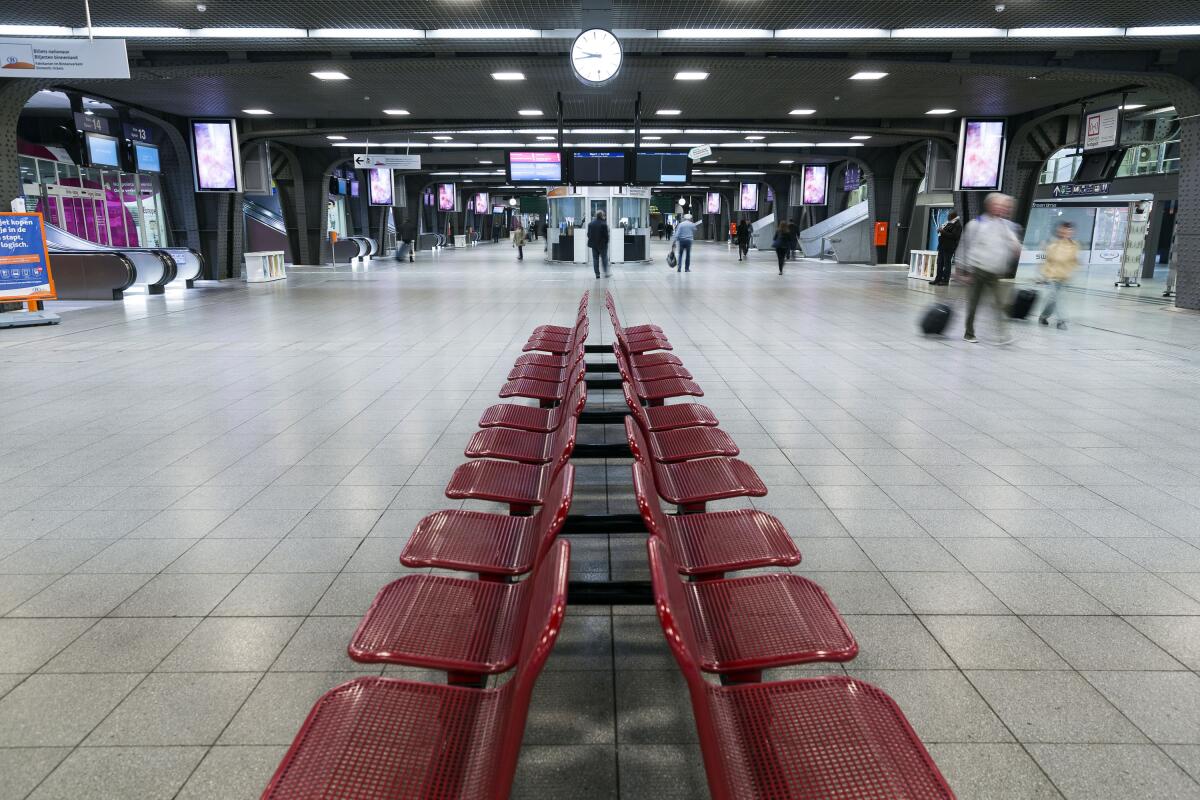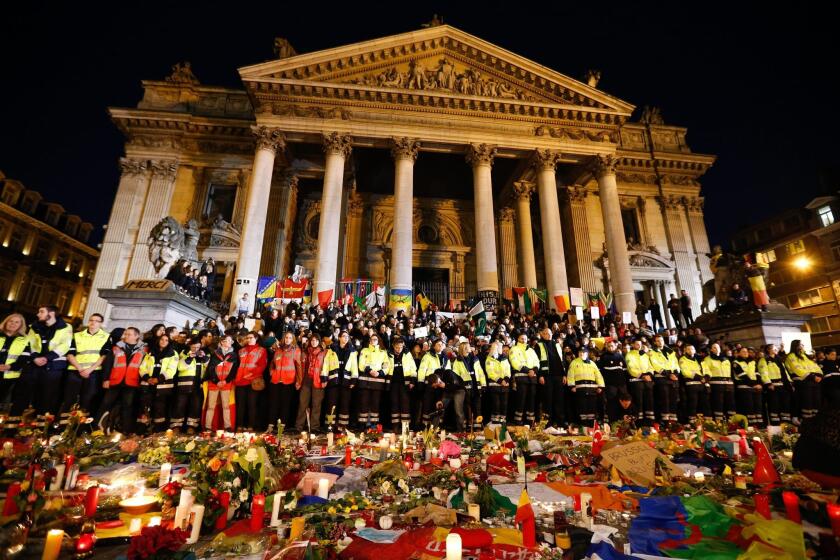Brussels Midi Station, once a stately gateway to Belgium, has become a place of neglect

BRUSSELS â Belgium acknowledged Thursday that its major rail gateway, the Brussels Midi Station, is now beset by drug abuse, poverty and violence that is a major stain on a nation preparing to take on the presidency of the European Union.
The government vowed to tackle the problem, but some critics say action is coming way too late, while others say that any cleanup operation will only push the big-city problems to other neighborhoods.
Belgium, one of the wealthiest nations in the world, with a major tourism industry, has neglected the once-stately Midi Station for decades. It has become a symbol of dysfunctional government as an increasing number of the 160,000 daily commuters and tourists no longer fully feel safe.
The spread of crack cocaine and open dealing and use of drugs in the neighborhood over the last year have exacerbated an already bad situation to the point that petty theft, fights and harassment of tourists have become everyday headline news in the nation of 11.5 million.
Belgium takes on the presidency of the 27-nation EU in January for six months. Governments that hold the presidency typically use the opportunity to bask in the global attention to promote their nation.
Prime Minister Alexander De Croo said at a news conference Thursday that he felt he had to take action and no longer leave security at such a key time to local authorities who had proved they were not up to the task.
âThe challenge is one of security that we owe to everyone passing through Brussels. It is about the livable conditions in the neighborhood, and of course, it is about the image of Brussels and the image of our nation,â he said.
As an immediate measure, it was announced that a special police station will be set up at the train station to make interventions easier.
Punctuated with gunfire and explosions, a new series of anti-terrorism raids unfolded Friday in the Belgian capital as the French president declared that the extremist cell behind Tuesdayâs bombings in Brussels and the attacks last November in Paris was being âannihilated.â
But far more fundamental issues are at stake, said historian, former politician and Brussels pundit Luckas Vander Taelen.
âNobody has done anything for years. So this problem gets always worse. And thatâs what happens today â everybody seems concerned. But I wonder what is going to change here,â he said.
Vander Taelen blamed Belgiumâs byzantine political structure of overlapping local, regional and national authorities who he said all too often blame one another instead of working together.
âThere are too many levels of power in Brussels and that paralyzes everything,â he said.
As criticism mounted, police organized highly publicized raids through the massive railway station, picking up and detaining several people while a cleaning team did away with much of the muck and dirt. Those are only stopgap solutions, though, said Ariane Dierickx of the aid group lâIlot, which provides services for homeless and needy people.
âIt was shocking to see that all these people that have been rejected by society are being picked up by police vans while they are not criminals,â she said. âIt shows how inadequate the response is.â Dierickx said it would only move the problem to other areas.
Belgiumâs image is being soiled in other places too, De Crooâs critics say, as problems at the Nord Station, another major train hub in the capital, havenât been much better.
One of the major issues has been the rise of drug trafficking and its accompanying violence in Belgium. The northern port of Antwerp has turned into a main gateway for Latin American cocaine cartels into the continent and cocaine seizures there have more than doubled in the last half decade, according to customs officials.
Because of that, relatively inexpensive cocaine has surged in Brussels and crack cocaine has become a major security issue, especially around the Midi station.
More to Read
Sign up for Essential California
The most important California stories and recommendations in your inbox every morning.
You may occasionally receive promotional content from the Los Angeles Times.











